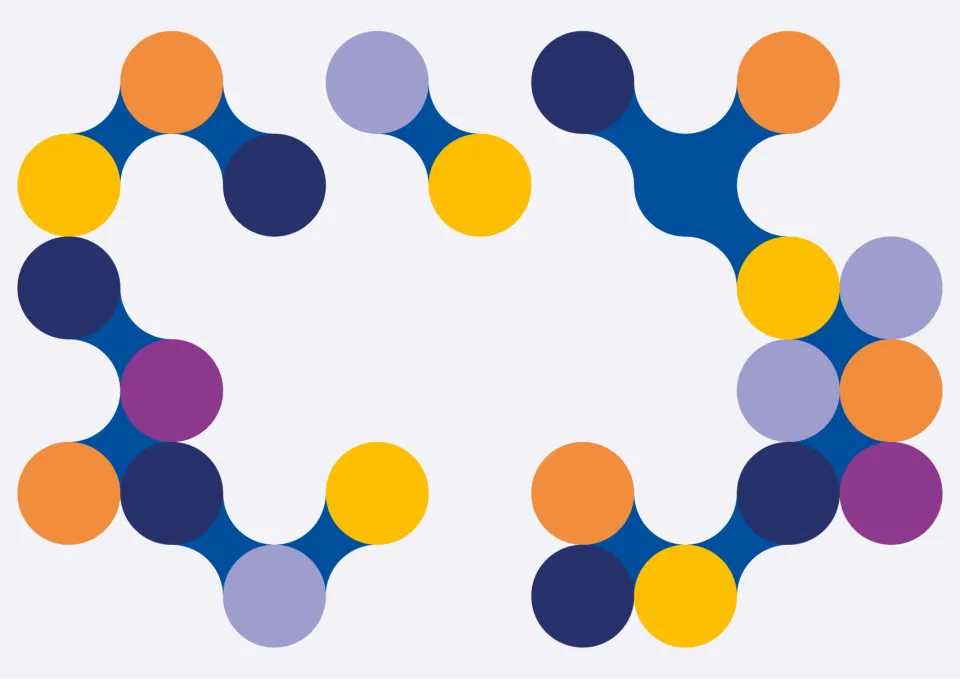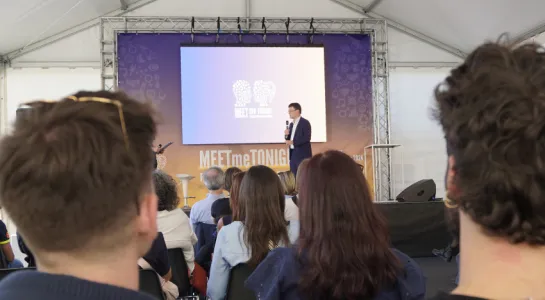
Care to Action: Joining Forces Against Cancer, Starting with People
What does fighting cancer really mean? It is not just a medical issue. It is a human, collective journey, made of public and private choices, innovation and listening, policies and relationships. This awareness is the foundation of Care to Action – Connecting Solutions for Beating Cancer, Bocconi University's new outreach project, which will be presented at Meet Me Tonight 2025 (September 26-27).
The experience is designed to guide visitors along the "journey" that any person can take – or has already taken – in their encounter with cancer: as a patient, as a caregiver, as a citizen. It is a physical and symbolic journey that puts the person at the center and shows how the fight against cancer is a cross-cutting alliance involving individuals, families, doctors, institutions, and the society in general.
“Research must engage with society on issues that affect us all. Care to Action was created to show, in a concrete and accessible way, the value that a multidisciplinary approach can have in transforming care and prevention into truly inclusive and people-centered tools,” explains Elena Carletti, Dean for Research at Bocconi University.
A journey between science and humanity
Designed in collaboration with the design company Logotel, the installation takes the public through the different stages of the cancer experience: from prevention to health literacy, from early screening to treatment, and finally to post-treatment management. Each stage features scientific evidence, open questions, and tools for reflection, in a format that is accessible to families and students.
The exhibition is supported by the research work of a team of Bocconi professors active on different fronts. Francesca Buffa, Full Professor of Computational Biology and Director of the “Artificial Intelligence and Systems Biology” laboratory at IFOM – the AIRC Institute of Molecular Oncology, shows how artificial intelligence can support more timely diagnoses and personalized therapies. Andrea Tangherloni, Assistant Professor of Computing Sciences, focuses on mathematical models as predictive tools to improve daily clinical work.
On the healthcare policy side, Marianna Cavazza (Associate Professor of Practice in Health Policy, CERGAS Bocconi) investigates how to effectively integrate all stages of care, promoting dialogue between patients, family members, professionals, and institutions. Oriana Ciani (Associate Professor of Practice in Health Economics and HTA, CERGAS Bocconi) broadens the perspective towards crucial issues such as access to treatment, patients' psychological well-being, and the active role of those coping with the disease in the decision-making process.
Research, listening, participation
Care to Action is not an exhibition to be viewed passively. It is an invitation to take a stand. Visitors can experience first-hand the projects Bocconi is carrying out to innovate the healthcare system hands-on: studies such as CINDERELLA or SHAREVIEW, which help women with breast cancer make more informed choices; initiatives such as HI-PRIX and Precision Oncology, which aim to make healthcare technologies accessible; and programs such as PRO4ALL, LuCapp, and SAGITTARIUS, which value the patient's point of view in assessing treatment effectiveness.
Each project has an information “postcard” that visitors can collect along the way: a simple gesture to take away a piece of knowledge, and perhaps share it.
A shared struggle
Far from any heroic rhetoric, Care to Action restores complexity and depth to the issue of cancer. The person is no longer a passive patient, but an active subject in dialogue with a network of actors—doctors, nurses, associations, policymakers, family members, and friends. Because in this challenge, no one is truly alone. And everyone, in their own role, can make a difference.
Because cancer affects us all. But the response can and must be collective. And it starts here.
